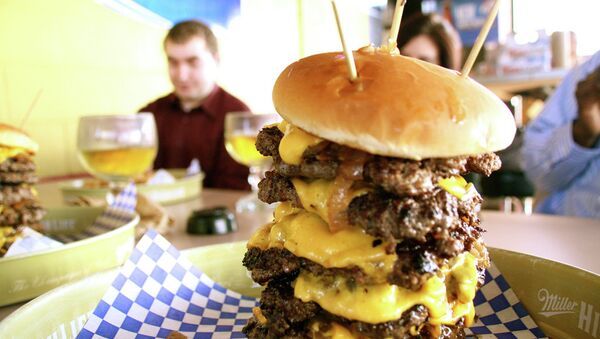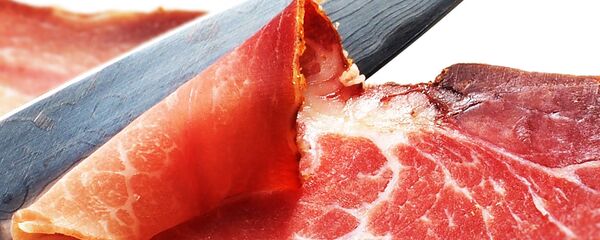The world's human population reached 7.4 billion in March 2016, having reached 7 billion in October 2011. In 2050, it is expected to reach 9.7 billion, raising the question of how to produce enough food for everybody.
Bruce Friedrich, Executive Director of the Good Food Institute, told Radio Sputnik that current methods of agricultural production are using energy inefficiently.
"Current techniques put at least nine calories into an animal, to get one calorie back out in the form of that animal's flesh. We'd need about five more planets to feed 9.7 billion people if we wanted to feed them all proportionally as much animal meat as people are eating today," Friedrich said.
"Clean meat is actually meat, you take cells from a chicken or a cow and you grow them by adding sugars instead of growing them in an animal," he explained.
Friedrich said that producing meat would become almost as easy as brewing beer, and could be done almost anywhere.
"You might go into a pub and they're got a beer fermenter right there, you could do that with meat. It would look basically the same. You could have one tank that is brewing beer and another tank that is basically cultivating meat in the tank."
Friedrich said that the idea of plant based and clean meat is very popular with consumers, and that investors are queuing up to invest in these technologies. Some of the newer firms which are developing them, "Impossible Foods," "Beyond Meat" and "Hampton Creek Foods," are valued at more than $2 billion dollars.
"It really is the future of food; these are renaissance technologies which have been taking off in the last couple of years."
"There will not be enough water available on current croplands to produce food for the expected population in 2050 if we follow current trends and changes towards diets common in Western nations (3,000 kcal produced per capita, including 20 per cent of calories produced coming from animal proteins)," they wrote in their report, called "Feeding a Thirsty World: Challenges and Opportunities for a Water and Food Secure Future."
"There will, however, be just enough water, if the proportion of animal based foods is limited to 5 percent of total calories and considerable regional water deficits can be met by a well-organized and reliable system of food trade," the scientists said.






